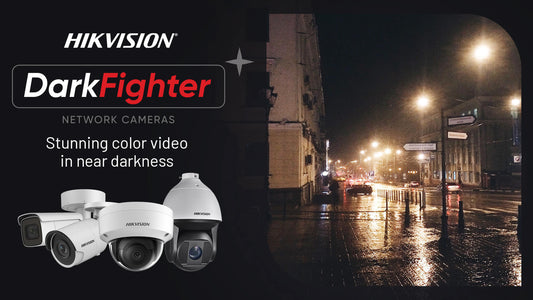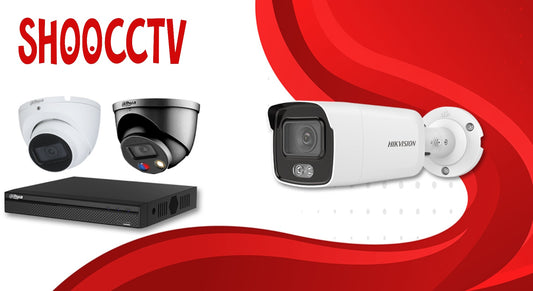DVR and NVR
DVR Vs NVR – How To Choose Between The Two?
When choosing a surveillance system, you will have two options in general. It will be an analog CCTV with DVR or an IP CCTV with NVR. Both types of video recorders have their own merits. One type is not better than the other, although one of them is the most recent innovation. So, before you decide which one to choose, have a glance through this article where we summarize the difference and the similarities between the two.
Weather it is an Analog or an IP systems, all CCTV systems can be accessed from the internet, monitoring from smart phones, tablets, and desktop computers as long as the NVR or DVR device is connected directly to the WAN (Wide Area Network) network or the Internet network.
In CCTV, the term Analog camera is only used when we compare it with IP cameras in order to be distinguished from one another. Analog cameras are ordinary CCTV cameras that use Coaxial cable, while IP cameras are cameras that use UTP cables or data cables to be able to connect to the network. IP Camera is a camera that uses Internet Protocol technology (also called TCP / IP protocol. However, those two types of surveillance systems share some similarities as the following.
- Camera Input Number
DVR (Digital Video Recorder) and NVR (Network Video Recorder) on the market generally start from 4, 8, 16, and 32 Channel. The number of channels is the maximum number that can be connected to a DVR / NVR. The greater the number of channels, the greater the capacity of the processor and RAM to process video data.
- Networking System
DVR and NVR, in addition to functioning as a video recorder from the camera, also functions as a server for computers, laptops, or smartphones who want to access the camera and the DVR / NVR itself to view the recordings. Therefore DVR / NVR has its own MAC address and one or two ethernet ports so that it can be connected to network infrastructure.
DVR systems
The Upside
- Does not require complicated knowledge in learning.
- Product variations are numerous, ranging from cameras, DVRs, and other supporting equipment.
- The price is cheaper than the same class IP Camera.
- Easier equipment configuration and settings.
- The image quality is very good and the movement of objects looks real.
- Video propagation can be further because the cable can be longer.
- The price of DVR (recording media) is getting cheaper.
The Downside
- Installing cables is a bit more complicated than IP cameras. Especially if you have needs at many points.
- The price of coaxial cables and BNC connectors is more expensive than UTP and RJ-45 cables.
- Requires more cable for power, data, and video.
- More easily influenced by noise and interference.
- More equipment needed to integrate the system.
NVR systems
The Upside
- Fewer and more concise cable installations.
- The cost of cables, connectors, and other supporting materials can be cheaper.
- More resistant to noise and interference.
- If it will be transmitted over the air (wireless), then the wireless IP Camera is safer from eavesdropping than analog cameras.
- The equipment needed to integrate fewer systems.
- TCP / IP technology continues to develop rapidly so that features can be better for the future.
The Downside
- A solid understanding of the basics of LAN and Internet networks is needed.
- The settings and settings are more complex.
- UTP cable length is limited by distance, in theory, a maximum of 100m. But it can be helped with the use of switches.
- The price of the camera is more expensive, as well as the price of the PoE (Power over Ethernet) adapter.
- Standalone recorders that directly support IP Cameras (called NVR or Network Video Recorder) are still few and quite expensive.
- Some NVR Software is still expensive.
- Bandwidth Planning is an important issue.
- Compared to analog, object movements on IP cameras generally experience slowing / like the movement of astronauts on the moon (moonwalk), except for high-end category products.
Which one to choose?
Well, the answer to this question depends on your condition and need. However, it is always a good idea to share your need with our CCTV expert so that we can give our best recommendation for you.



